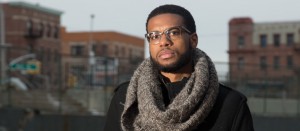ABA Journal: Has ‘stop and frisk’ been stopped?
In the new, gentrified post-9/11 New York City, gone are the days when a visitor’s trip to Times Square might include aggressive panhandling, a mugging or an uncomfortable exchange with a prostitute. But gone, too, are $900 apartments in the East Village, Soho artists lofts that artists can actually afford and $150-a-night hotel rooms that have their own bathroom.
In one of the signature achievements of Michael Bloomberg’s three terms as mayor, New York police helped create a new quality of life for many New Yorkers—even the poorest—through a sometimes merciless attention to low-level crimes like public intoxication, littering, graffiti, loitering and petty property crimes…
Robin Steinberg is executive director of the Bronx Defenders, a nonprofit group that provides legal assistance to the indigent. She is hopeful about the proposed Floyd settlement agreement, but she says she finds it hard to believe the culture of the New York Police Department would suddenly have changed as much as Bratton might suggest.
In January, Steinberg notes, “11 young men were unlawfully stopped and frisked against the walls of the Bronx Defenders while one of our investigators recorded it on his phone. No contraband or weapons were found on anyone, and no arrests were made. It looked like stop-and-frisk as usual.”
Some have wondered whether New York City crime rates will shoot back up as police cut back on their stop-and-frisk practices to honor the settlement agreement. Steinberg doubts that will happen. She notes that as police stop-and-frisks declined over the past year, crime rates also continued to drop.
“History shows that crime rates are cyclical. Social scientists debate the reasons why, but no one has the answer. So at some point, no matter what policing strategies you have in place, crime rates will likely rise. Hopefully, it won’t be on the watch of a new, progressive mayor who is trying to make important and thoughtful reforms to policing in New York City,” she says.
“It’s easy to talk about equality and fairness now; the challenge is to hold on to those values when you don’t feel safe,” Steinberg adds. “That’s the real, true test of your commitment to fairness.”
 Kamau Butcher, a policy organizer with the Bronx Defenders, regularly speaks with young people about police encounters and their legal rights. He’s met people who have never been stopped, as well as people who get stopped on a weekly basis.
Kamau Butcher, a policy organizer with the Bronx Defenders, regularly speaks with young people about police encounters and their legal rights. He’s met people who have never been stopped, as well as people who get stopped on a weekly basis.
“Sometimes it’s not adversarial; it’s more like: ‘You know the drill. Get up against the wall,’ ” says Butcher, who sees such stops as examples of how relations between police and “community folks” have deteriorated.
When speaking with youths, Butcher focuses on their “rights, realities and responsibilities.” They often tell Butcher they are too afraid to ask police if they can leave during stops. He doesn’t blame them.
“A kid is up against a wall, and he thinks, ‘The officers are not touching me, but they’re both bigger than me, and they have guns. I am just going to hope that they leave me alone.’ ”
Butcher recalls an account a teen shared at a Hunts Point session.
“He said that he knew everything he was supposed to do during a stop, and he tried to do it,” Butcher recalls. “The police officer laughed at him and said he watched too much TV. Then the officer proceeded with the search and threw him up against a car.”
By Stephanie Francis Ward
Read full article here.

